The idea of needing braces for you or your child might not exactly make you jump for joy. And without the proper financial plan, braces can be pricey, too.
Without a visible teeth problem, it can be easy to convince yourself to put off visiting your orthodontist for a braces consultation. But ignoring the need for braces can lead to other health issues, ones that can cause much worse issues than a crooked tooth — plus, it can lead to even more health expenses.
Braces are for much more than making sure you’ve got a straight smile. While straight teeth are a big confidence-builder, there are plenty of other ways braces can help keep you or your children healthy and happy:
Better digestive health
- Misaligned or crooked teeth can cause chewing problems
- Food that isn’t properly chewed isn’t properly digested — this can lead to digestive issues
Reduced risk of tooth decay
- Crooked or crowded teeth make for hard-to-reach areas where food debris collects
- When food debris collects, so does bacteria — the combination creates a nasty film called plaque
- When left unmanaged, plaque deteriorates your tooth enamel and can cause serious damage
Clearer speech
- Misaligned and crowded teeth can cause speech issues by impacting the movement of your jaw and tongue
- With straight teeth, there is plenty of room and proper movement needed for speaking clearly and confidently
Now that the perks are clear, you might still be wondering you to know if you or your children need braces, besides just having crowded or crooked teeth.
Read on to learn important signs you might need braces.
Unnatural Loss of Baby Teeth
Baby teeth are far more important than you might think. These teeth pave the way for permanent teeth, and impact the development of your facial structure. In turn, the way your facial structure develops at a young age determines your ability to eat, chew and speak.
When baby teeth are lost too early or too late, it shifts around the spaces that should be reserved for permanent teeth. This can cause permanent teeth to grow back crowded.
If your child looses a baby tooth before the age of 3, you’ll want to consult a dentist. Losing a tooth this early could be a sign of tooth decay or other dental issues.
You’ll also want to check in with a dentist if your child hasn’t lost any baby teeth by the age of 7. While it’s likely nothing to be alarmed about, the dentist can do an X-ray to make sure that adult teeth are healthy and on their way.
Braces can help correct the crowding of teeth by guiding them into the places they should be, creating better alignment and less risk of a the need for future correctional procedures like surgery.
Misalignment in Teeth and Bite
Misalignment of your teeth and bite is called malocclusions. Misalignment can take different forms, including:
- An open bite, where the top and bottom rows of your teeth don’t meet when your mouth is closed
- An overbite, where the top row of teeth significantly overlaps the bottom row
- An under bite, where the bottom row of teeth overlaps the top
- A cross bite, where one or more teeth don’t correctly correspond with the corresponding tooth on the opposite row
- Crowded teeth, where teeth overlap the teeth next to them
As we touched on before, these issues can mean more than a blow to the confidence (which can be hard enough)!
Crowded teeth increase the risk of tooth decay, and a misaligned bite causes chewing and digestive issues. If you or your child face any of these issues, it’s time to save yourself future problems by consulting an orthodontist.
Metal braces are the cheapest and most effective way to correct misalignment.
Your orthodontist will determine whether braces are needed to correct a misalignment. If they are, the braces will work to realign teeth by applying pressure over time to slowly move the teeth and jaw into the places they need to go to align.
Without braces, a misaligned bite can cause some teeth to be ground down completely, creating the need for surgeries or expensive veneers.
Gaps in Your Teeth
While spaces in between your teeth can be normal for baby teeth, gaps between permanent teeth can cause oral health issues like bad breath and plaque build-up, thanks to the spaces they leave for food and bacteria to gather.
Gapped teeth can be caused by multiple factors:
- Genetics
- Teeth that are too small for your jaw
- Thumb sucking
- Incorrect swallowing reflexes that push the tongue against the front row of your teeth rather than the roof of your mouth
- Gum disease that causes your teeth to shift
Gaps in your teeth can cause chewing problems, which can lead to digestive issues. They can also cause your tooth enamel to be more vulnerable to plaque and debris.
No matter the cause, your orthodontist will know whether braces are the best solution.
Over time, braces can help close these gaps, making teeth easier to keep clean and ensuring biting happens without damaging teeth or causing chewing issues.
Jaw Problems
Your jaw is an important and often-used part of your body, and discomfort in our jaw can significantly impact your day-to-day life.
Lockjaw for example, (also known as TMJ), is the inability to move your jaw properly, which can sometimes cause pain. It can be caused by various teeth issues that add pressure to the jaw joints and muscle, such as a misaligned bite, teeth gaps, and over or under bites.
Braces can help ease TMJ and other unnecessary jaw stress by aligning your bite and relieving the jaw from any unnecessary strain or stress, in turn saving you from headaches, chewing problems, and other discomfort.
Other Chewing Problems
It’s normal for kids (and some adults) to be messy eaters. But chewing problems make for a whole new kind of challenge.
If you or your children experience problems chewing such as your teeth sliding, trouble putting down enough pressure to chew properly, or keeping food in your mouth while chewing, there’s a chance you can find comfort with braces.
Pain while chewing can also be a sign of more health issues, like the start of gum disease or tooth decay.
Your oral health can affect the health of your entire body as well as your mental wellbeing.
Poor oral health and ignoring other dental issues can cause bigger problems, such as tooth decay, chewing problems (which can lead to trouble with digestion), and lockjaw.
A reliable orthodontist can help you determine the exact cause for these chewing issues. If it’s a jaw or teeth alignment issue, they’ll ensure your braces are adjusted perfectly to correct the issue you’re facing.
If it’s another issue, such as dental hygiene or other health problems, they can help you determine a treatment process for those too!
Staying on top of keeping your mouth healthy can pay off in countless ways. By consulting a reliable orthodontist, you can save yourself and your children pain and discomfort down the road — not to mention saving yourself a lot of money on expensive treatments, too.
The best way to avoid the need for braces caused by these issues is through prevention. And if you’re children still have their baby teeth, this is a great opportunity for their first orthodontic appointment.
First, take a look at these tips for early orthodontic treatment »

